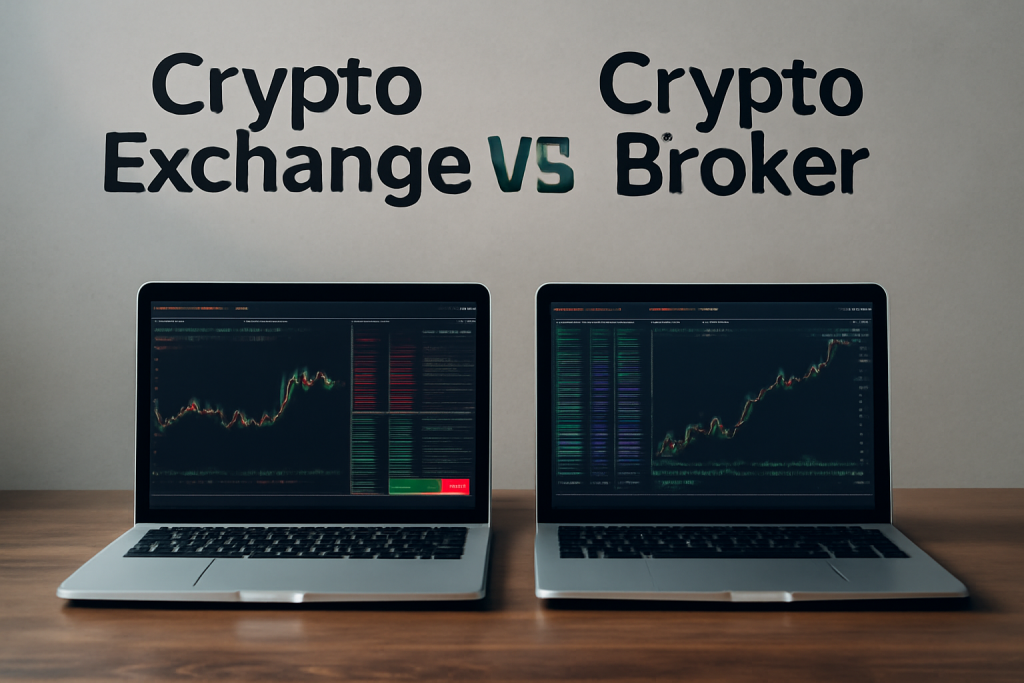As digital currencies continue gaining traction in the financial world, traders and investors alike face a key decision: should they go with a crypto brokerage company or trade directly on a crypto exchange platform? While both avenues offer access to digital assets, the underlying mechanics, benefits, and risks differ significantly.
And if you’re considering diving into this world not just as a trader but as a business owner, you may also be looking at options like joining a cryptocurrency broker program, which allows businesses to operate as intermediaries by offering crypto trading services under an established platform’s infrastructure. Let’s break down the differences and help you figure out which path suits your goals best.
What is a Crypto Brokerage Company, and How Does It Work?
A crypto brokerage company acts as an intermediary between the trader and the open crypto market. Instead of buying actual coins, users trade CFDs (Contracts for Difference). This means you’re speculating on price movements without holding the underlying asset.
Let’s say a trader predicts that the price of Bitcoin will rise. They open a long CFD position with the broker. If the price rises, they pocket the difference; if it drops, they take the loss. The trader never actually owns Bitcoin — it’s all about price speculation.
Most crypto brokers focus on a handful of high-volume digital currencies and offer:
- Access to advanced analytical tools
- Real-time price monitoring
- Options to go long or short
- User-friendly interface.
Digital Currencies Trading on a Crypto Exchange: How Is It Different?
A crypto exchange platform, on the other hand, allows users to physically buy, sell, and store digital currencies. When you buy 5 ETH on an exchange, those coins are yours to send, stake, or hold.
Exchanges usually offer:
- Access to hundreds or even thousands of digital assets
- High liquidity, especially on top pairs
- Tools for passive income instruments like staking and yield farming
- Cold wallet storage for added safety.
That said, crypto exchanges can be complex. Their interface may seem overwhelming for beginners, and security remains a concern, especially for hot wallets. However, for long-term holders and investors looking to diversify portfolios or earn yield, exchanges are often the better option.
|
Feature |
Crypto Brokerage Company |
Crypto Exchange Platform |
|---|---|---|
|
Ownership of assets |
No actual ownership; CFD contracts only |
You own the coins you buy |
|
Array of digital currencies |
Limited to top coins |
Broad selection including new tokens |
|
Liquidity |
Depends on platform’s internal liquidity |
Generally deeper and more competitive |
|
Regulation |
Often licensed by top-tier financial regulators |
Varies; some operate under lighter jurisdictions |
|
Safety |
Lower risk of hacking (no custody) |
Custodial risk exists; cold wallets mitigate it |
|
Interface |
Streamlined and beginner-friendly |
More complex, but feature-rich |
|
Passive income instruments |
Rarely available |
Staking, launchpads, savings tools |
|
Analytical tools |
Often advanced and integrated |
Basic charts unless using external platforms |
Table: Key Differences at a Glance
If you’re an active trader focused on price movements and you prioritize simple UI, real-time analytics, and don’t need to hold coins, a crypto brokerage company is your best bet. It provides flexibility and speed while keeping funds off-chain, reducing custodial risks.
But if you’re an investor who wants actual ownership, access to a wide range of coins, and the ability to leverage passive income instruments, then a crypto exchange platform is the way to go.
Whether you trade CFDs or own tokens outright, the digital asset space has something tailored for your strategy. Just make sure your choice fits your experience level, risk tolerance, and long-term goals.





















